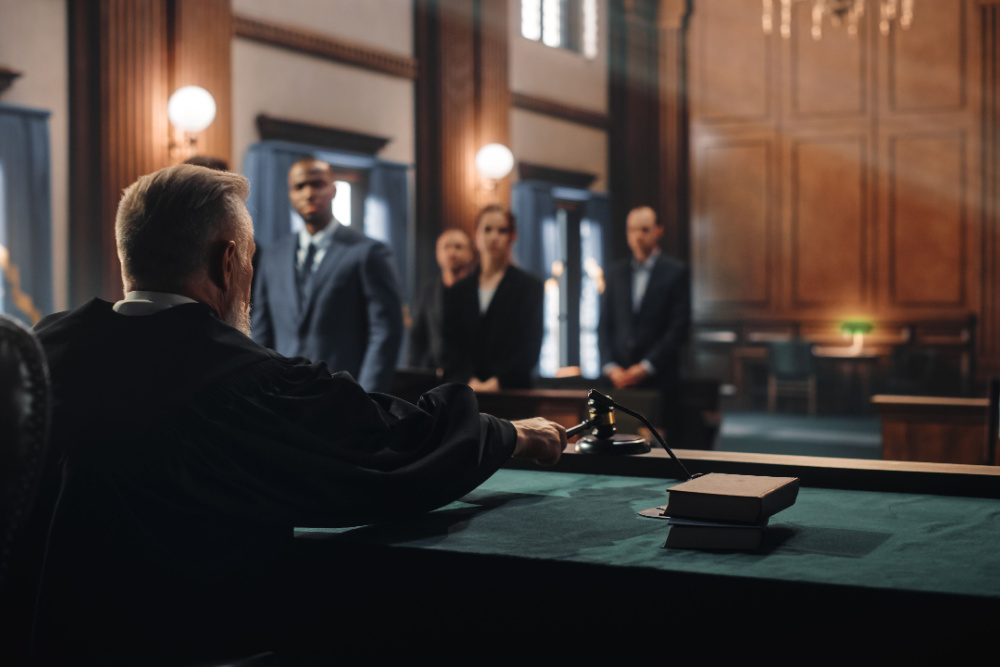There are various scenarios in life when hiring a professional makes a significant difference. While a do-it-yourself approach may be adequate for home improvements or cooking, it’s not the best strategy for legal matters, particularly personal injury cases. This blog will delve into the risks of self-representation in a personal injury case, highlighting why obtaining professional legal help is paramount.
Understanding Personal Injury Law
Personal injury law, also known as tort law, allows an injured person to seek compensation when someone else’s negligent or intentional act causes harm. It covers a variety of situations, including but not limited to auto accidents, slip and fall accidents, medical malpractice, and product liability cases. Representing yourself in a personal injury case, known as pro se representation, is fraught with risks. Here are some key reasons why self-representation may not be the best choice.
The Complexity of Legal Processes
The legal world is complex, filled with intricate laws, procedural rules, and extensive paperwork. Representing yourself means navigating through this complicated maze without a guide. It’s not just about knowing the law but understanding how to apply it in a real-world context. Each step is filled with potential pitfalls, from filing a lawsuit to gathering evidence and negotiating a settlement.
Moreover, the legal system is not designed to favor those without professional training. Judges are bound by the rule of law and can’t provide legal advice or assist you in your case. Hence, it becomes essential to understand and comply with court rules and procedures to avoid jeopardizing your case.
Inadequate Valuation of Claims
One of the most critical aspects of a personal injury case is determining the value of your claim. This involves calculating tangible costs such as medical bills and lost wages and intangible damages like pain and suffering or loss of consortium. An incorrect claim valuation can lead to a significant loss of potential compensation. In contrast, an experienced personal injury attorney is well-versed in evaluating claims accurately. They understand the nuances of the law and how different factors can impact the value of your claim.
Weak Negotiation Skills
Negotiations are an integral part of personal injury cases. You must negotiate with insurance adjusters trained to minimize the payout for the insurance company. Without strong negotiation skills and a comprehensive understanding of the law, you may settle for less than what your claim is worth.
Potential for Error
Legal proceedings require the accurate completion of numerous legal documents. An error or omission in these forms can delay your case or, worse, lead to its dismissal. Lawyers have extensive training in correctly completing these documents and are equipped with the tools to avoid such errors.
Lack of Objectivity
It’s natural to have a subjective view of your own personal injury case. However, this can cloud your judgment, making it difficult to make rational decisions. An attorney can provide a more objective view of your case, advising on the best course of action based on their experience and the facts of the case.
Limited Access to Resources
Personal injury attorneys have access to resources that can significantly strengthen your case. This includes expert witnesses, private investigators, and medical professionals who can testify about your injuries and how they will affect your future. Self-representing individuals typically don’t have access to these resources, limiting their ability to build a strong case.
No Legal Consequences for the Opposing Party
In a personal injury case, the opposing party may be more likely to take advantage of a self-represented individual. They might presume that a person without legal representation lacks a thorough understanding of the law and can be easily coerced into a lower settlement.
Missing Out on Legal Strategies
Lawyers spend years studying and practicing law. This gives them a depth of knowledge and experience that allows them to devise strategies tailored to the unique circumstances of each case. Without this expertise, a self-represented individual might miss out on potential legal strategies that could significantly affect the outcome of their case.
The Risk of Losing Your Case
Perhaps the most significant risk of self-representation in a personal injury case is the potential to lose your case entirely. Failing to meet deadlines, improper filing of paperwork, or a lack of understanding of legal procedures can lead to the dismissal of your case, leaving you with no compensation for your injuries.
Stress and Time Consumption
Representing yourself in a personal injury case can be a time-consuming and stressful endeavor. You need to spend time understanding the law, collecting evidence, preparing legal documents, and more. The stress of managing a lawsuit can add to the physical and emotional burden of recovering from an injury.
Conclusion
While it may seem tempting to save on attorney fees by representing yourself in a personal injury case, the risks and potential losses far outweigh the potential savings. Hiring an attorney for your personal injury case increases your chances of a favorable outcome and allows you to focus on your recovery.
Having a professional handle your case ensures that you receive fair treatment and the compensation you deserve for your injuries. Attorneys have the knowledge, experience, and resources to navigate the legal system effectively and advocate on your behalf. Don’t let the complexities of the legal system stand between you and the justice you deserve. If you or a loved one has been injured due to someone else’s negligence, seek professional legal help. An experienced personal injury attorney can guide you through the process, ensuring your rights are protected. Remember, your health and future well-being are too important to risk self-representation. Contact us today to schedule a free consultation and learn how we can help you.








